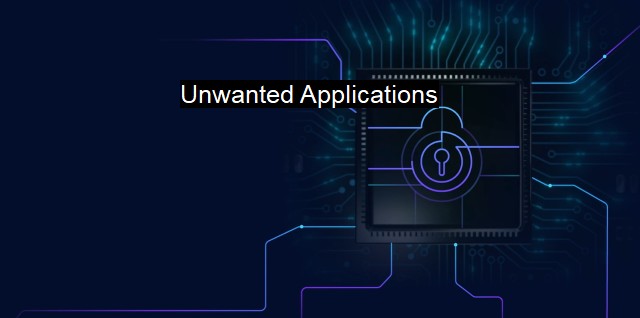What are Unwanted Applications?
The Growing Threat of Potentially Unwanted Applications (PUAs) and the Critical Role of Antivirus Software in Securing Computer Systems
The term "Unwanted Applications" holds substantial significance. Unwanted Applications, also commonly known as Potentially Unwanted Applications (PUA) or Potentially Unwanted Programs (PUP), refer to software applications that, despite not being inherently malicious like viruses or Trojans, can degrade users’ experiences, compromise privacy, or exhibit otherwise undesirable behavior.To understand unwanted applications it's important to understand how these solutions sneak onto your system. They usually piggyback on other software installations, often through freeware or shareware. People may inadvertently agree to install these unwanted applications when they're not attentive enough while installing the primary software. Sometimes, even downloads from less reputable sites can bring along unwanted applications; these may include media players, file-sharing programs, or tools that purportedly enhance your system’s functionality.
Unwanted applications pose a variety of threats that can harm your cybersecurity posture. One of the primary concerns is that they often act as adware, constantly presenting infuriating pop-ups, redirecting browsers to unwanted websites, or altering your browser settings and homepage. This not only disrupts the browsing experience but can lead the user to inadvertently download additional harmful software.
Many unwanted applications are packaged with spyware or trackware that records users' activities. They discreetly glean a wealth of information, like browsing histories, keyboard inputs, or even personal and sensitive data. This privacy-compromising behavior may then lead to targeted advertising, identity theft, financial fraud, and may potentially expose users to cyberattacks.
Unwanted applications can also slow down your device. They often run in the background, taking up valuable system resources, and leading to slower performance speeds. With enough of these programs operating hidden from the user's view, they can cause significant negative impacts on system performance.
Despite this, unfortunately, most traditional antivirus software doesn't treat unwanted applications as malicious threats. Only specific cybersecurity programs that make a distinct effort to identify and eliminate unwanted applications view such software as a serious risk, and these thus provide a crucial layer of protection.
Prevention strategies can include being vigilant during the installation of new software, using advanced security solutions, being discerning with software sources, regularly cleaning up programs and files, and ensuring all software, including your operating system, is regularly updated.
Even though unwanted applications may not constitute malicious threats like viruses or worms, they still represent a significant nuisance and can create vulnerabilities in cybersecurity defenses. They not only diminish user experiences through annoying ads and slower performance, but also pose more serious threats through their capacity to compromise privacy and facilitate cyberattacks. With the increasing digitalization facets of life, security measures, whether technical or based on user awareness, must give due credence to such often overlooked but significant threats as unwanted applications. Given the potential harm they can wield, remaining vigilant towards unwanted applications is a contemporary must for users seeking to maintain robust cybersecurity health.

Unwanted Applications FAQs
What are unwanted applications?
Unwanted applications refer to software or programs that are installed on a computer or device without the user's knowledge or consent. These may include malware, spyware, adware, or any other software that exhibits unwanted behavior or has malicious intentions.How do unwanted applications enter a system?
Unwanted applications may enter a system through various means such as phishing emails, software downloads from untrusted sources, or clicking on malicious links. In some cases, they may also come bundled with legitimate software downloads.What are the risks of having unwanted applications on a system?
Unwanted applications can pose a significant risk to a system's security and privacy. They may steal confidential data, track user activity, display unwanted advertisements or pop-ups, or even take control of the system. They may also open up vulnerabilities that can be exploited by cybercriminals, leading to further attacks on the system or network.How can I protect my system from unwanted applications?
To protect your system from unwanted applications, it's essential to use reputable antivirus software and keep it updated regularly. Avoid clicking on suspicious links, downloading software from untrusted sources, and responding to phishing emails. It's also crucial to keep your operating system and software updated with the latest security patches.| | A | | | B | | | C | | | D | | | E | | | F | | | G | | | H | | | I | | | J | | | K | | | L | | | M | |
| | N | | | O | | | P | | | Q | | | R | | | S | | | T | | | U | | | V | | | W | | | X | | | Y | | | Z | |
| | 1 | | | 2 | | | 3 | | | 4 | | | 7 | | | 8 | | |||||||